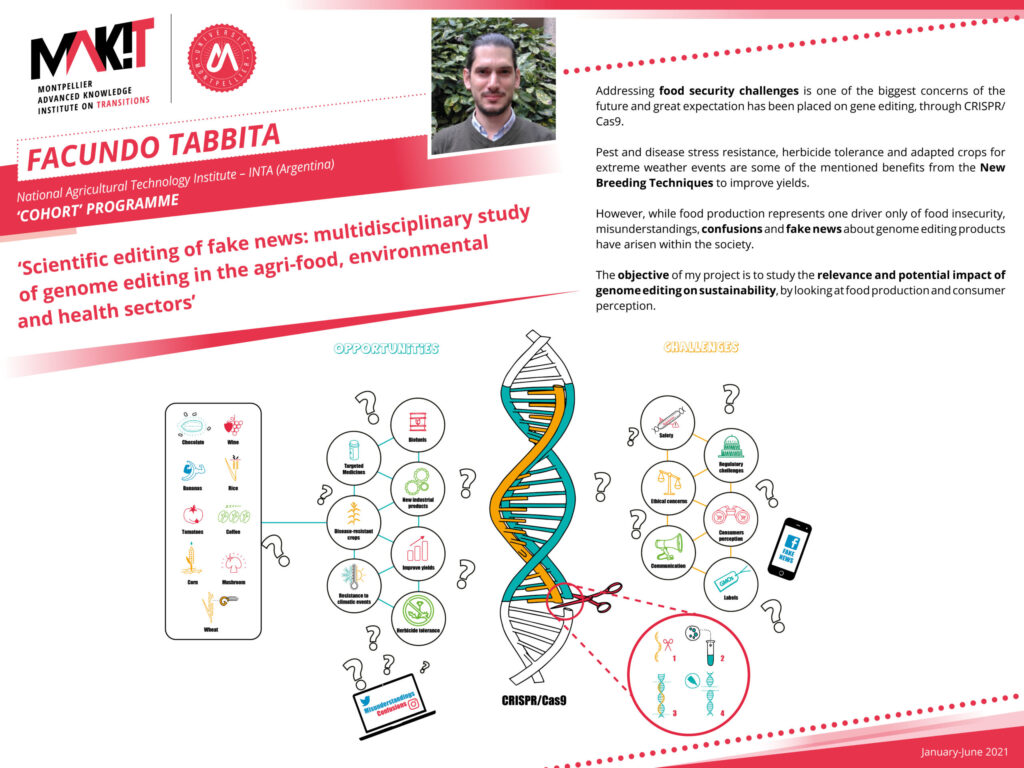Facundo Tabbita
In addition to his research work at the Institute of Biological Resources of the National Institute of Agricultural Technology (INTA), Argentina, Facundo Tabbita is a Regular Senior Teaching Assistant of the Applied Biology and Food Department, School of Agronomy at the University of Buenos Aires.
Dr. Tabbita’s professional motivation is to make practical contributions to sustainable agriculture in order to guarantee food safety. He has focused his work on cereals biofortification and nutrition. Applying different strategies, like artificial crossings, genome editing, and genome and ionome characterizations, his objective is to develop new germplasm with higher nutritional quality.
Dr. Tabbita, who holds a PhD in Agronomy from the University of Buenos Aires (Argentina), already participated in several fellowship programs at the University of California, USA, at Bologna University, Italy and at Colorado State University, USA (Fulbright grant). Since 2018 he participates in the Argentinean Wheat Value Chain Commission (ArgenTrigo) and is responsible since 2019 of the INTA ‘Youth Network’.
During the 20th Century, major advances in agronomic practices and plant breeding delivered significant improvements in agricultural crops. Despite this progress, widespread food shortages persist. Furthermore, it is estimated that agricultural production will need to increase by 60% to provide food security for a human population anticipated to reach 9 billion by 2050. This challenge will likely be exacerbated by increased competition for land use, changing dietary habits and more volatile climatic patterns.
In this context, addressing food security challenges is one of the biggest concerns of the future and great expectation has been placed on gene editing, through CRISPR/Cas9, wich is revolutionizing the field of plant and animal breeding. Indeed, this methodology allows to edit candidate genes related with agronomic traits and develop new alleles that can be applied to the breeding programs. Thus, the CIRSPR-Cas9 technology can improve pest and disease stress resistance, herbicide tolerance and adapted crops for extreme weather events.
However, while food production represents one driver only of food insecurity, misunderstandings and confusions about genome editing products have arisen among the society The objective of my project is to study the relevance and potential impact of genome editing on sustainability, by looking at food production and consumer perception. To achieve this goal I will develop a comprehensive map highlighting existing public opinion about this technique, describe advances made by genome editing in the agri-food, environment and health sectors and develop resources and training tools to deepen genome editing knowledge.
